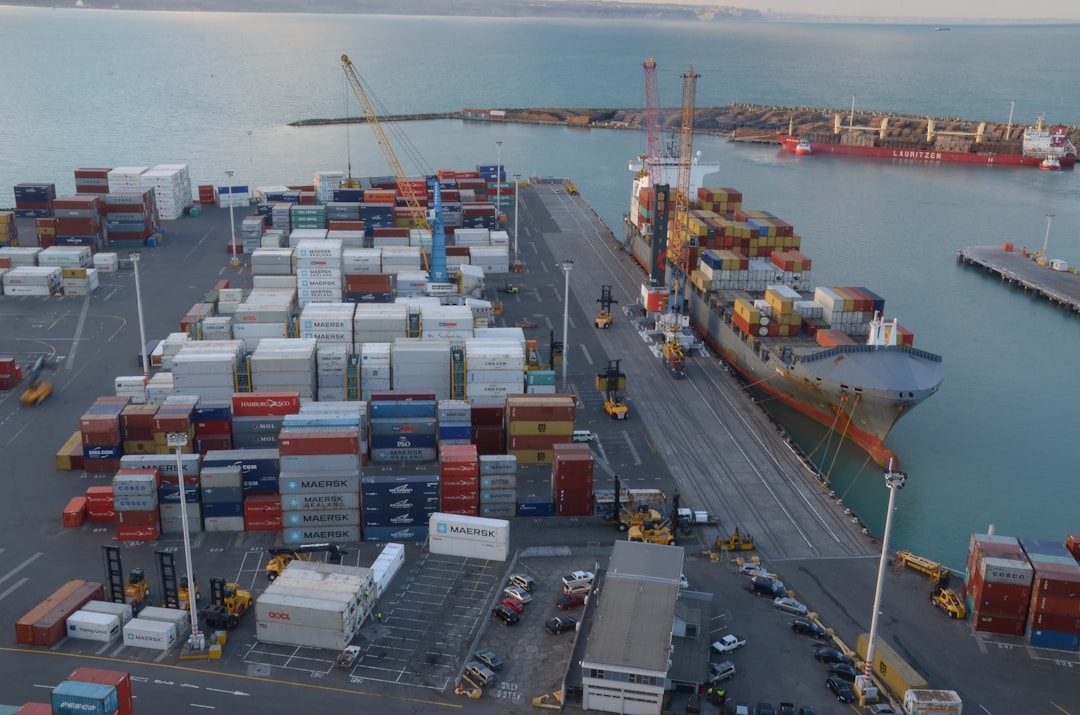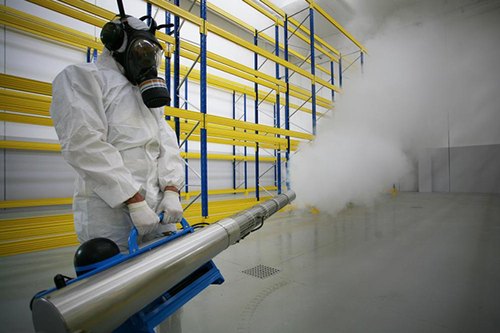Shipping containers are durable steel boxes. These rectangular cargo boxes hold commodities and are transported on ships, trains, or trucks.
Each cargo box makes multiple trips per year. Since they were invented in 1956, containers have become one of the primary methods for transporting goods worldwide. Despite the durability and convenience, containers must be fumigated. Read on to learn why container fumigation is crucial.
The shipping industry is global.

The global shipping container industry generated 8.7 billion U.S. in revenue in 2019, and its value continues to increase steadily. Every day, millions of cargo ships use these steel boxes to transport goods around the globe. Most cargo boxes are manufactured in China, ensuring the majority of cargo boxes are transported internationally at some point.
All goods and people entering a country are subject to inspection. Inspectors ensure the contents of cargo boxes match the paperwork. They prevent illegal goods from entering their country. They also look for potential health concerns.
The Australian government established the Australian Quarantine and Inspection Service (AQIS) to address safety concerns, including biosecurity risks. Biosecurity risks are health and environmental risks posed by pests and invasive species found in cargo boxes. AQIS accredited container fumigation services fumigate cargo boxes. Leading container fumigation experts, such as Global Fumigation Services, use environmentally sustainable chemicals to kill pests. They offer their clients onshore fumigation, bulk fumigation, and log fumigation. Global Fumigation Services also provides ISPM15 stamping required for all wood products, such as timber, crates, and pallets. ISPM15 stamping confirms wood products have been fumigated per local, state, and federal regulations.
Container fumigation kills pests.

In the 14th Century, fleas and lice transmitted the Black Plague throughout Europe, killing millions of people. Today, common pests such as cockroaches, fleas, lice, and rodents can be transported around the globe faster than ever, thanks to efficient shipping services that transport people and goods from continent to continent. As the COVID-19 pandemic illustrated in 2020, diseases can be spread around the world. While human hosts transmit many diseases, others are spread by pests.
Consumers don’t want to spend money on a new mattress or other products infested with bedbugs or other bugs. Imagine you’re planning to buy a new mattress. A Serta mattress is a superior mattress manufactured in the United States. Serta mattresses include comfort foam mattresses and mattresses with hard firmness, medium firmness, and soft firmness. Purchasing a new mattress is an investment in your health because your mattress has a significant impact on the quality of your sleep. People scratch bites, which can lead to infections. Container fumigation ensures harmful pests, including bedbugs, are killed before products reach retailers.
Shipping delays and invasive species are expensive.

Most countries rely on global trade to acquire essential materials and supplies. Shipping delays jeopardize the economy, costing countries hundreds of millions of dollars. The global economy relies on consistently transporting goods as quickly as possible.
It takes a short amount of time to fumigate containers. Still, it costs shipping companies, ports, and retailers more money if a ship has to be contained while fumigators address an infestation. Retailers could bear the brunt of the costs if they receive infested goods, which could spread throughout their store and destroy goods.
Cargo ships can transport invasive species. Invasive species are species that are transported to a place where they don’t naturally exist. These alien species disrupt the environment. They affect the food supply, threatening entire ecosystems and changing natural habitats. For example, the stink bug is an invasive species that damage fruit trees. As of 2016, there were 1,300 invasive species affecting countries worldwide. Proceedings of the National Academy of Sciences of the United States of American (PNAS) reported invasive species and pathogens cost forest and crop production nearly $40 billion in losses annually. Fumigation reduces the cost of infestations.
Global trade is crucial to the economy, and nations rely on global trade to access materials and goods they need. Container fumigation ensures goods entering each country are safe, preventing invasive species and toxins from spreading worldwide.





